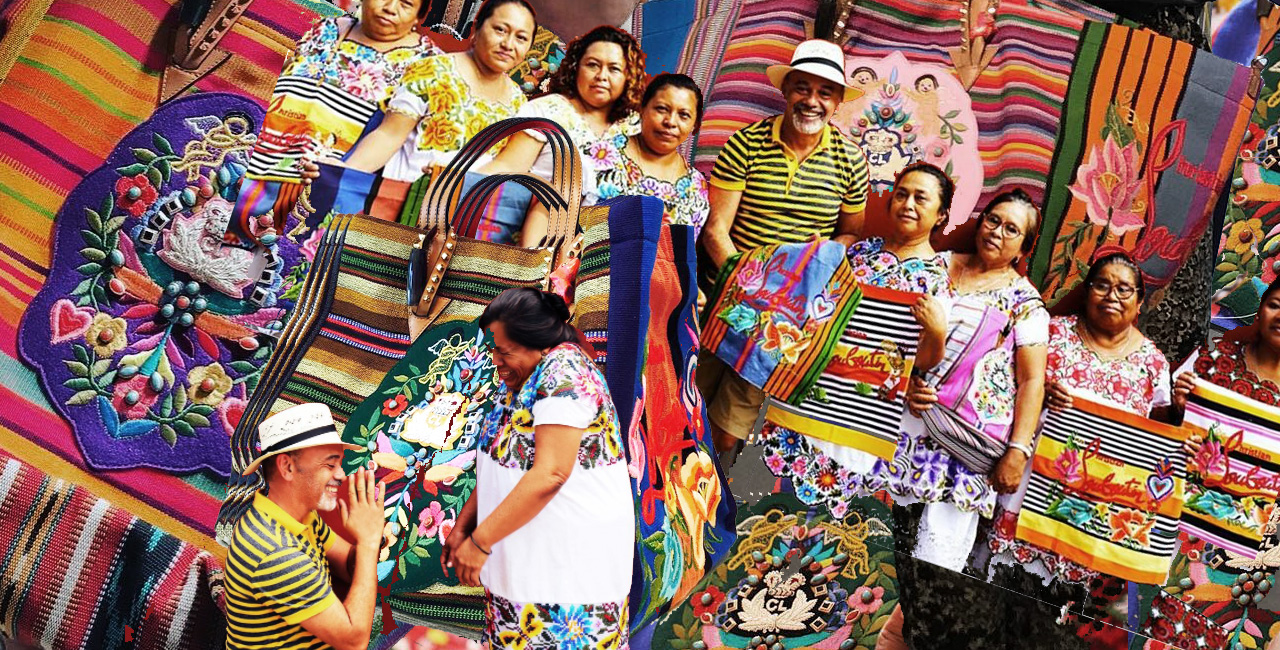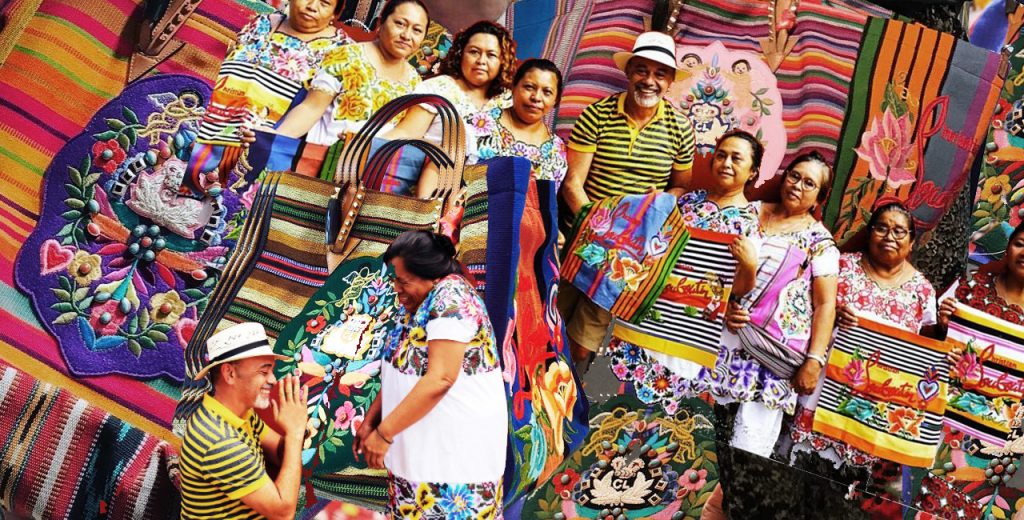In a May blog post on Christian Louboutin, the company introduced its Mexicaba purse – a tote featuring the unique bordados of Maya women. The post mainly focuses on Louboutin’s relationship with Taller Maya – a Mexico-based brand that “works with artisans from the Yucatan Peninsula in the creation of unique pieces with history and great cultural value” – as well as the brand’s commitment to donating 10 percent from each sale to Taller Maya. But with the purses, which have sold out, going for $1,490, some questioned whether the company fairly compensated the woman who created the designs. In a comment on an Instagram post from June 17, Louboutin World stated that the “artisans who worked on the Mexicaba were paid an equitable wage for their work.” Nearly a month after the company’s post, an El Universal article shed some light on the terms of compensation.
According to 54-year-old María Deysi Balam Cauich, one of the Maya women who worked with the high-fashion brand, Louboutin paid between 227 and 238 pesos – approximately $12.81 and $13.43 – for each bordado. María and three other women from Maxcanú who participated in the project told the publication that they earned a total of about 7,000 pesos – ~$394 – for the few months of work. For their part, the Maya women – who set the price – said Louboutin paid them well.
“It’s good that they sold well,” María said. “This job was a blessing, and we were able to earn good money that we hadn’t seen in a long time.” The French brand provided cloth, thread, and other materials to the women. The designer visited the women in December and commissioned a total of 2,000 pieces from the artisans in Maxcanú but also from other parts of Yucatan, including Xohuayán, Oxkutzcab, and Maní.
After El Universal published its piece, people returned to that June 17 Instagram post and called Louboutin exploitative. It stirred so much controversy that in an interview with Reporte Indigo, Graciela Zavala – who represents Fundación Haciendas del Mundo Maya, which helped bring the program to life – clarified some of the information. According to Zavala, the about $12 the women earned was not per bag, but per bordado. Each bag, she said, has three bordados. She also reiterated that the Maya weavers set the price themselves. But as El Universal‘s video shows, María Deysi was shocked when she learned the price of the bags.
According to Zavala, the women usually charge 120 to 150 pesos, but upped their rate to 235 pesos/bordado for Louboutin. (She doesn’t clarify if this is the amount is what all women who participated in the project earned.) Zavala also added that the women didn’t create the bags – they were produced in Italy – or hand sew the bordados. Instead, they used an embroidery machine and a loom.
And while Zavala’s comments fill in some gaps, it doesn’t mean that Louboutin is exempt from blame. To the fashion house’s credit, they reached out to these women and didn’t just steal their designs. This doesn’t always happen. In 2015, Mexico’s Mixe community accused French designer Isabel Marant of stealing its huipil designs. Urban Outfitters also faced similar accusations in 2011. The Navajo Nation sued the brand for using the Navajo name to sell its clothing. In 2015, a court ruled that the Navajo name wasn’t famous enough, before the two sides ultimately settled this year.
Even though Louboutin allowed the women to set their price, it raises the question of whether or not it’s ethical to pay these artisans a price that isn’t proportional to the cost of the bag. The women had no idea that Louboutin would sell the bags for nearly $1,500. Therefore, accepting the women’s offer feels especially egregious, especially when you consider the marginalization of indigenous communities.
While there’s also something to be said about those who purchased the bags – affluent types divorced from the cultural context these women women work and live in – it seems most commenters have focused on the compensation. And it’s a necessary conversation to have, because this won’t be the last time a brand works with indigenous artisans.
We have contacted Louboutin to clarify about its compensation. We will update the article if we get a response.




